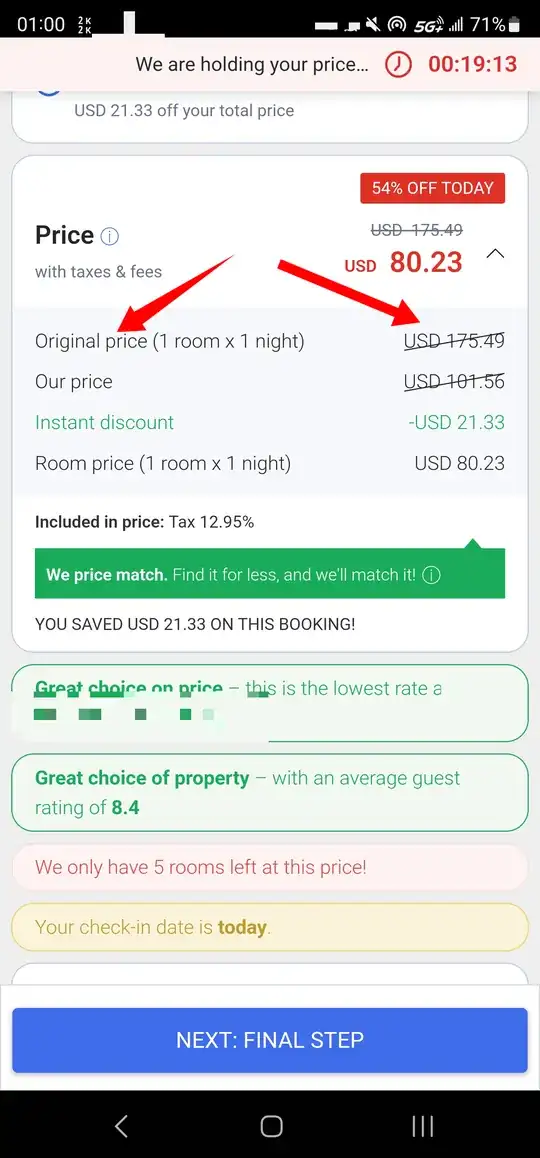united-states
About Agoda specifically, there is ongoing pre-certification class proceedings, initiated in the Superior Court for the State of California and subsequently removed to the US District Court for the Southern District of California. Here is the originating complaint: David E. Martinez v. Booking Holdings Inc. et al. (Complaint, June 3 2020, Case No. 37-2020-00018413-CU-BT-CTL). The federal court docket is at 3:20-cv-01289 (S.D. Cal.). The plaintiff alleges that Agoda:
has a uniform policy and practice of claiming fake discounts. It does this by, among other ways, expressly claiming that rooms are "discounted" and by listing an arbitrary fake base price (which it calls the "original price"), which purports to be the price at which the room is ordinarily rented to consumers. The fake original prices are in fact significantly higher than the true prices at which the rooms are ordinarily rented. Based on this fake original price, Defendant then lists a discount or sometimes "percentage off" that the current price of the room represents. This creates the misleading impression in the mind of the consumer that they are getting a good deal on the room. In fact, the overwhelming majority of rooms offered are never, or almost never, rented at anything but Agoda's stated (final) price.
The complaint notes (at para. 29) that 16 C.F.R. Section 233.1 "specifically prohibits the advertising of false, 'phantom' price reductions and discounts off of inflated, fictitious 'regular' prices that never actually existed." For reference, 16 C.F.R. Section 233.1 says:
If ... the former price being advertised is not bona fide but fictitious — for example, where an artificial, inflated price was established for the purpose of enabling the subsequent offer of a large reduction — the “bargain” being advertised is a false one
The causes of action alleged are several statutory causes of action under California's consumer protection legislation, breach of contract, breach of warranty, and unjust enrichment.
The claim is presently stayed (on hold) pending the outcome of arbitration.
canada
The Competition Act, s. 74.01 requires "that when a business advertises a sale price by relating it to a higher regular price (the full price of the product without any discounts), the business must be able to validate the regular price" by reference to either its own previous pricing or the pricing of suppliers generally.
An explainer is here. The Competition Bureau says:
If someone puts a phoney regular price on a product, merely to cross it out and claim that the item is marked down, the consumer might not be getting any saving at all. And, if the consumer is deceived, the market is not operating fairly.
Some example enforcement actions:
- Amazon.ca agreed to pay a $1 million penalty and $100,000 in costs for posting an unverified "regular price" that created the impression that prices for items offered on Amazon.ca were lower than prevailing market prices (see January 11, 2017 News Release).
- Hudson's Bay Company agreed to pay a $4 million penalty and $500,000 in costs to resolve allegations that it "offered sleep sets at inflated regular prices and then advertised deep discounts on these prices, suggesting significant savings to consumers (see May 8, 2019 News Release).
- Michaels agreed to pay a $3.5 million penalty after the Competition Bureau concluded that Michaels promoted picture frames for sale at a "substantial discount" but did not ensure that the frames were first offered for sale in good faith at the higher price (see May 6, 2015 News Release).
